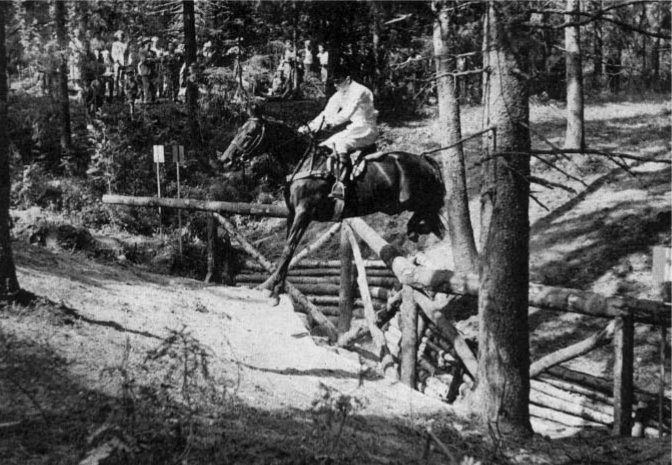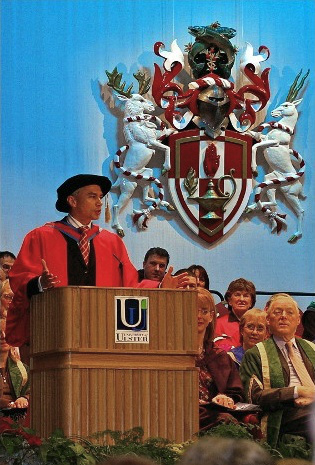|
West Buckland School
West Buckland School is an independent school in West Buckland, Devon in the English public school tradition. It comprises a senior school, preparatory school, and a nursery. It is a relatively high performing school in Devon. It was one of eight schools shortlisted for 'Boarding School of the Year' in the TES Independent School Awards 2019, a category won by Cottesmore School. The school facilitates 640 pupils of whom around 140 board; 16% of students are international. The day pupils and weekly boarders are drawn from a wide area of North Devon and beyond, many using the large school bussing operation in collaboration with local coach operators. History West Buckland School was founded as the Devon County School in 1858 by Rev. J.L. Brereton to provide a public school education for sons of farmers and the middle class. The foundation stone of the Gothic(?)-style buildings was laid in October 1860 by Earl Fortescue, who had provided land and other support for the school. ... [...More Info...] [...Related Items...] OR: [Wikipedia] [Google] [Baidu] |
West Buckland, Devon
West Buckland is a small village and former manor located east-south-east of Barnstaple in North Devon, England. South Molton is the nearest town. The hamlet of Elwell lies to its north-east. The civil parishes of East Buckland and West Buckland were merged on 1 April 1986, forming the civil parish of East and West Buckland. History The manor was formerly part of the Fortescue Estate, owned by the Earls Fortescue of nearby Castle Hill, Filleigh. Earlier the manor together with the advowson of the church had been acquired by the influential Barnstaple merchant and MP John Delbridge (1564-1639). Access Most travellers reach West Buckland by a steep, winding, mostly single track hill up from the North Devon Link Road (A361). Facilities Until 2008 the village had a small post office; the post office is now held in the church on two afternoons a week, Tuesdays and Thursdays. West Buckland was one of the first villages in the country to arrange such a facility. The village ... [...More Info...] [...Related Items...] OR: [Wikipedia] [Google] [Baidu] |
Earl Of Devon
Earl of Devon was created several times in the English peerage, and was possessed first (after the Norman Conquest of 1066) by the de Redvers (''alias'' de Reviers, Revieres, etc.) family, and later by the Courtenay family. It is not to be confused with the title of Earl of Devonshire, held, together with the title Duke of Devonshire, by the Cavendish family of Chatsworth House, Derbyshire, although the letters patent for the creation of the latter peerages used the same Latin words, ''Comes Devon(iae)''. It was a re-invention, if not an actual continuation, of the pre-Conquest office of Ealdorman of Devon. Close kinsmen and powerful allies of the Plantagenet kings, especially Edward III, Richard II, Henry IV and Henry V, the Earls of Devon were treated with suspicion by the Tudors, perhaps unfairly, partly because William Courtenay, 1st Earl of Devon (1475–1511), had married Princess Catherine of York, a younger daughter of King Edward IV, bringing the Earls of Devon ver ... [...More Info...] [...Related Items...] OR: [Wikipedia] [Google] [Baidu] |
Bertie Hill
Albert "Bertie" Edwin Hill (7 February 1927 – 5 August 2005) was a British equestrian who competed at three Olympic Games. After serving in the Home Guard during the Second World War, Hill became an amateur jockey in point-to-point racing. He went on to represent Britain in three-day eventing, winning a gold medal at the 1956 games in Stockholm along with a host of other international trophies. In the 1960s, Hill and his wife opened a riding school at Rapscott on Exmoor, training a number of future international riders including Princess Anne and Captain Mark Phillips Captain Mark Anthony Peter Phillips (born 22 September 1948) is an English Olympic gold medal-winning horseman for Great Britain and the first husband of Anne, Princess Royal, with whom he has two children. He remains a leading figure in Britis .... References External links Obituary of Bertie Hill, Daily Telegraph Newspaper, 30 August 2005 1927 births 2005 deaths Olympic ... [...More Info...] [...Related Items...] OR: [Wikipedia] [Google] [Baidu] |
Harold Gimblett
Harold Gimblett (19 October 1914 – 30 March 1978) was a cricketer who played for Somerset and England. He was known for his fast scoring as an opening batsman and for the much-repeated story of his debut. In a book first published in 1982, the cricket writer and Somerset historian David Foot wrote: "Harold Gimblett is the greatest batsman Somerset has ever produced." Gimblett is a member of the Gimblett family, an Anglo-French family who arrived in Britain in the early 18th century from Metz. The family spread out over Britain, with branches located in Somerset, Scotland, and South Wales. There are variations of the spelling of the name, including Gimlet, Gimlette, and Gimblette. Gimblett scored at a fast rate throughout his career, and hit 265 sixes – "surely a record for a regular opening batsman", wrote Eric Hill, his postwar opening partner and thereafter a long-time journalist watcher of Somerset. He appeared, however, in only three Tests, none of them agains ... [...More Info...] [...Related Items...] OR: [Wikipedia] [Google] [Baidu] |
Triple Jump
The triple jump, sometimes referred to as the hop, step and jump or the hop, skip and jump, is a track and field event, similar to the long jump. As a group, the two events are referred to as the "horizontal jumps". The competitor runs down the track and performs a hop, a bound and then a jump into the sand pit. The triple jump was inspired by the ancient Olympic Games and has been a modern Olympics event since the Games' inception in 1896. According to World Athletics rules, "the hop shall be made so that an athlete lands first on the same foot as that from which he has taken off; in the step he shall land on the other foot, from which, subsequently, the jump is performed." The current male world record holder is Jonathan Edwards of the United Kingdom, with a jump of . The current female world record holder is Yulimar Rojas of Venezuela, with a jump of . History Historical sources on the ancient Olympic Games occasionally mention jumps of 15 meters or more. This led sports ... [...More Info...] [...Related Items...] OR: [Wikipedia] [Google] [Baidu] |
Jonathan Edwards (triple Jumper)
Jonathan David Edwards, (born 10 May 1966) is a British former triple jumper. He is an Olympic, World, European and Commonwealth champion, and has held the world record in the event since 1995. Following his retirement as an athlete, Edwards has worked as a sports (primarily athletics) commentator and presenter for BBC television. Formerly a devout Christian, he also presented episodes of the BBC Christian worship programme ''Songs of Praise'', until he renounced his faith in 2007. In 2011 he was elected President of the Wenlock Olympian Society following the death of its then President, Roy Rogers. He was a member of the London Organising Committee of the Olympic and Paralympic Games for the 2012 games. Education Edwards was born in Westminster, London and attended West Buckland School in Devon where his potential for the triple jump was spotted at an early age. He was a strong all-rounder, and on leaving received the school's top award for sporting and academic excelle ... [...More Info...] [...Related Items...] OR: [Wikipedia] [Google] [Baidu] |
To Serve Them All My Days
: ''For the 1980 television adaptation, see To Serve Them All My Days (TV series).'' ''To Serve Them All My Days'' is a novel by British author R. F. Delderfield. First published in 1972, the book was adapted for television in 1980. It has been adapted twice by Shaun McKenna, first as a stage play at the Royal Theatre Northampton (Royal & Derngate) in 1992 and again as a five-part series of 45-minute plays for BBC Radio 4, first broadcast in January 2006. Plot summary David Powlett-Jones, a coal miner's son from South Wales, has risen from the ranks of the South Wales Borderers and been commissioned as a Second Lieutenant in World War I after serving three years in the front-line trenches. In 1918, after being injured and shell-shocked, he is employed to teach history at Bamfylde School, a fictional public school in North Devon. Under the tutelage of Headmaster Algy Herries, who views him as a possible successor, David discovers a vocation in teaching. He swiftly earns ... [...More Info...] [...Related Items...] OR: [Wikipedia] [Google] [Baidu] |
London School Of Economics
, mottoeng = To understand the causes of things , established = , type = Public research university , endowment = £240.8 million (2021) , budget = £391.1 million (2020–21) , chair = Susan Liautaud , chancellor = The Princess Royal(as Chancellor of the University of London) , director = The Baroness Shafik , head_label = Visitor , head = Penny Mordaunt(as Lord President of the Council '' ex officio'') , students = () , undergrad = () , postgrad = () , city = London , country = United Kingdom , coor = , campus = Urban , free_label = Newspaper , free = '' The Beaver'' , free_label2 = Printing house , free2 = LSE Press , co ... [...More Info...] [...Related Items...] OR: [Wikipedia] [Google] [Baidu] |
John Ashworth (biologist)
Sir John Ashworth (born 27 November 1938) is a scientist and educationalist. Education He was educated at West Buckland School and Exeter College, Oxford. He obtained a PhD degree in biochemistry at Leicester University and was a lecturer and reader there before taking up a post of foundation Professor of Biology at University of Essex in 1974. His scientific research at the time focused on developmental biology and cell differentiation, with a particular interest in the slime mold. Career John Ashworth joined the UK government's Cabinet Office in 1976, where he acted as the chief scientific adviser to the government, initially on secondment, and then as an undersecretary in the Cabinet Office from 1979 to 1981. He became vice-chancellor at the University of Salford from 1981 to 1990, and then director of the London School of Economics from 1990 to 1996. He was a chairman of the British Library board 1996–2001, the Institute of Cancer Research (deputy chairman) 2003–07 ... [...More Info...] [...Related Items...] OR: [Wikipedia] [Google] [Baidu] |
Science Fiction
Science fiction (sometimes shortened to Sci-Fi or SF) is a genre of speculative fiction which typically deals with imaginative and futuristic concepts such as advanced science and technology, space exploration, time travel, parallel universes, extraterrestrial life, sentient artificial intelligence, cybernetics, certain forms of immortality (like mind uploading), and the singularity. Science fiction predicted several existing inventions, such as the atomic bomb, robots, and borazon, whose names entirely match their fictional predecessors. In addition, science fiction might serve as an outlet to facilitate future scientific and technological innovations. Science fiction can trace its roots to ancient mythology. It is also related to fantasy, horror, and superhero fiction and contains many subgenres. Its exact definition has long been disputed among authors, critics, scholars, and readers. Science fiction, in literature, film, television, and other media, has beco ... [...More Info...] [...Related Items...] OR: [Wikipedia] [Google] [Baidu] |
Brian Aldiss
Brian Wilson Aldiss (; 18 August 1925 – 19 August 2017) was an English writer, artist, and anthology editor, best known for science fiction novels and short stories. His byline reads either Brian W. Aldiss or simply Brian Aldiss, except for occasional pseudonyms during the mid-1960s. Greatly influenced by science fiction pioneer H. G. Wells, Aldiss was a vice-president of the international H. G. Wells Society. He was (with Harry Harrison) co-president of the Birmingham Science Fiction Group. Aldiss was named a Grand Master by the Science Fiction Writers of America in 2000 and inducted by the Science Fiction Hall of Fame in 2004. He received two Hugo Awards, one Nebula Award, and one John W. Campbell Memorial Award. He wrote the short story "Supertoys Last All Summer Long" (1969), the basis for the Stanley Kubrick–developed Steven Spielberg film ''A.I. Artificial Intelligence'' (2001). Aldiss was associated with the British New Wave of science fiction. Life and caree ... [...More Info...] [...Related Items...] OR: [Wikipedia] [Google] [Baidu] |
North Molton
North Molton is a village, parish and former manor in North Devon, England. The population of the parish in 2001 was 1,047, decreasing to 721 in the 2011 census. An electoral ward with the same name also exists. The ward population at the census was 2,206. Bounded on the north east by the border with Somerset, it is the second largest parish in Devon, covering about 15,000 acres. Until the 18th century the village was an important centre of the woollen industry, and mining was also a significant employer in the parish until the 19th century. History North Molton was a manor within the royal demesne until it was granted to a member of the la Zouche family by King John. In 1270 Roger la Zouche was granted a licence to hold a weekly market in the manor and an annual fair on All Saints' Day. The manor then passed through the St Maur family to the Bampfylde family, in the 15th century. Amyas Bampfylde (died 1626) built Court Hall—now demolished—to the immediate east of the ... [...More Info...] [...Related Items...] OR: [Wikipedia] [Google] [Baidu] |





.jpg)
